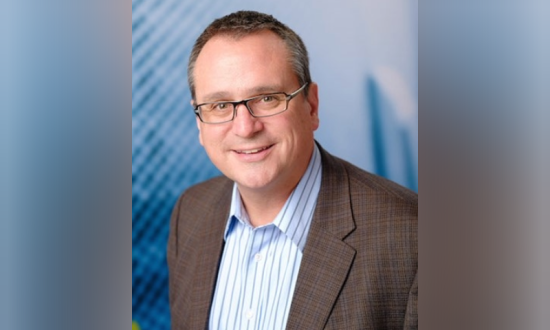Kevin Benedict serves as a futurist on the Future of Business team at Tata Consultancy Services. He is a passionate advocate for using technology for social good. He writes and speaks globally on emerging and disruptive technologies, business strategies and combining technology and culture to make our world a better place.
Recently, in an exclusive interview with Digital First Magazine, Kevin shared his professional trajectory, the main digital threats that large organisations should keep an eye on in the coming years, the best piece of advice he has ever received, future plans, words of wisdom, and much more. The following excerpts are taken from the interview.
Hi Kevin. Please tell us about your career path and areas of interest. How did you get to becoming a futurist?
I went straight from milking cows on a dairy to working in a downtown computer center where I was exposed to the possibilities a career in high tech offered. From there I leaned heavily into software sales, product management and eventually leadership in technology start-ups. Having written and spoken publicly a great deal on the subject of emerging technologies and the future, career opportunities opened up for me to become a full-time futurist focused on helping companies prepare and anticipate the future.
What do you love the most about your current role as a Futurist?
Finding historic patterns in research that inform us on how the future might be influenced by these same patterns.
In your opinion, what are the main digital threats that large organisations should be concerned about within the next 5-10 years?
A lack of digital media literacy means many people will fail to grasp the difference between true and false information. This can lead to disinformation being embraced by large numbers of people. This of course slows positive progress, collaboration, and a unified approach to solving some of the world’s biggest problems.
Generative AI is a major topic lately. Can you tell us more about the emerging opportunities with generative AI? What risks should we be thinking most about?
Generative AI is a superpower we can all use to augment our existing talents and skills. It brings knowledge of the world to us through our digital devices. It provides us will a level of capability only dreamed of outside of science fiction. However, we must recognize that all inventions and innovations automatically include unintended consequences and accidents. Good people will use AI for good, bad people will use AI for bad. We must enhance the good and diminish the bad.
How do you foresee the relationship between AI, robotics, and human interaction evolving in the coming years, and what are the implications for businesses?
Increasingly there will be a mix of AI, robots, and humans in the workforce and at home. In the battle between the future and the past, the future always wins – so it is best to upskill and become experts at using these superpowers to improve the quality of human life. We should do this while demanding regulatory frameworks to diminish negative impacts, and to support workers in their need to reskill and upskill their capabilities and to shift into new and emerging career opportunities.
According to you, what will successful leadership of the future look like?
A successful leader will consider the needs of all stakeholders and will create businesses that enhance the quality of human life. This means they will recognize that ultimately their employees and customers are humans, and we should always be looking for ways to improve the quality of human life.
In your academic or work career, were there any mentors who have helped you grow along the way? What’s the best piece of advice you have ever received?
Yes, I have had many mentors, some taught me what to do, while others taught me what not to do – but I learned from all of them. My best piece of advice is to be an expert in whatever you are doing. Be the expert!!!
What is it that motivates and inspires you in your everyday life?
The wilds of mountains, oceans, and wilderness and time with friends and family. The spiritual connection available through these relationships and remote and contemplative environments are amazing and inspiring.
What are you particularly proud of in your career?
Believing that there was much yet to learn, and much to discover. This has motivated me to dig deep and explore the possibilities that the future holds.
Where do you see yourself in the next 5 years?
Deep into learning and sharing all the new things we are discovering and realizing.
What would you recommend IT Leaders start taking action towards to prepare for the future?
Understand the holistic view of the future. The roles lenses, sensors, data, analytics, supercomputing, networked knowledge, platforms, digital twins and AI will play as they are combined into new and brilliant things.






